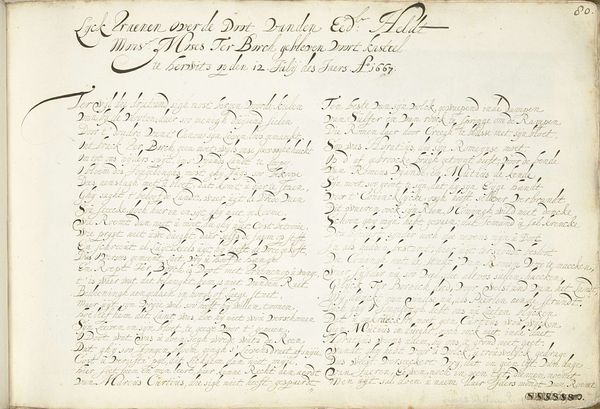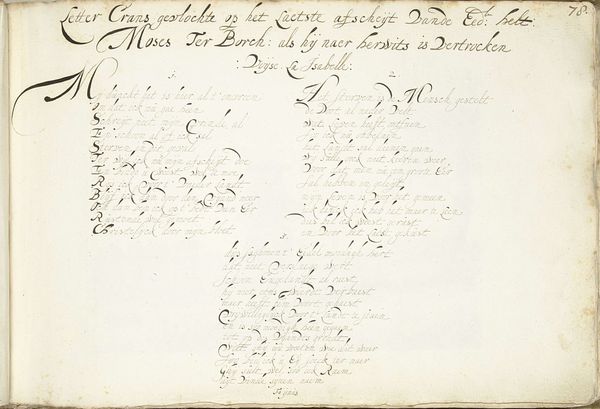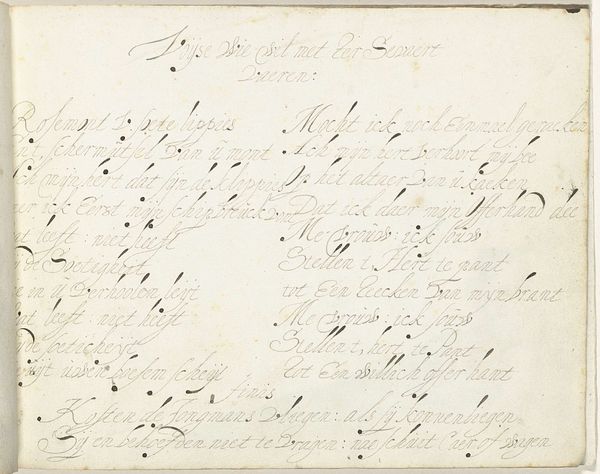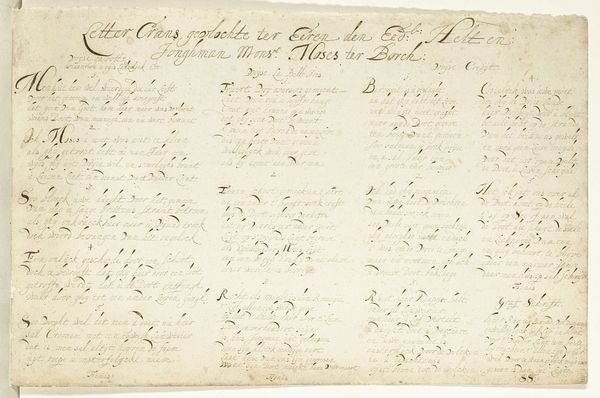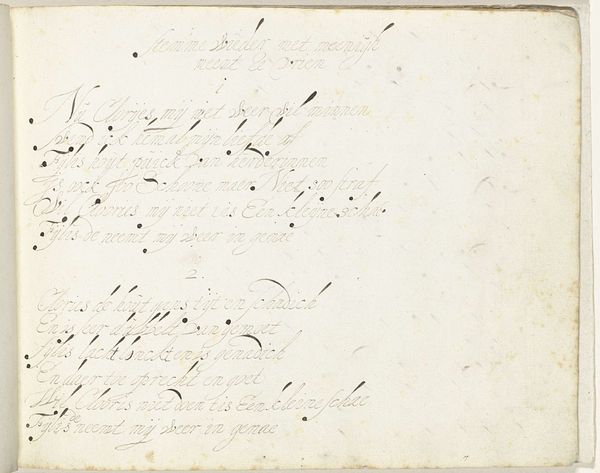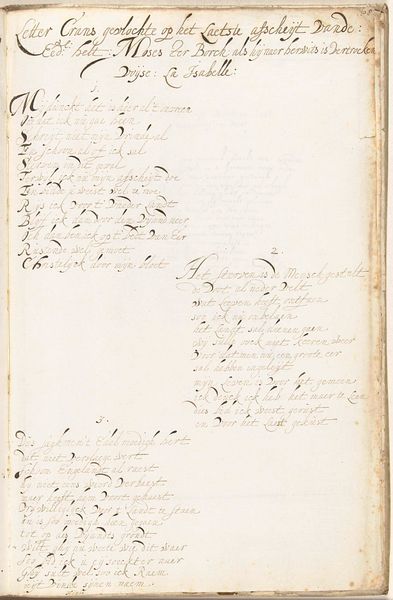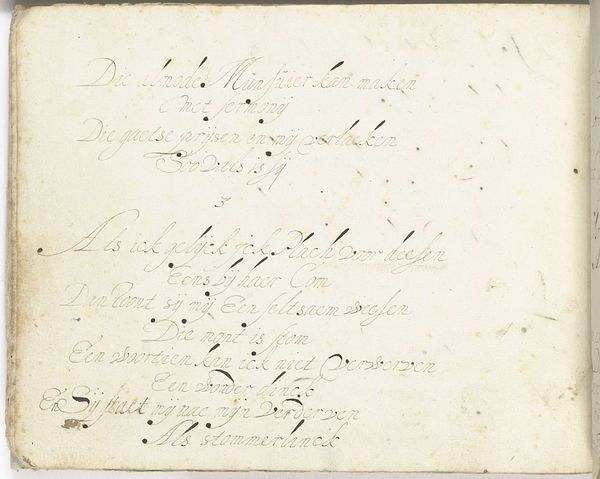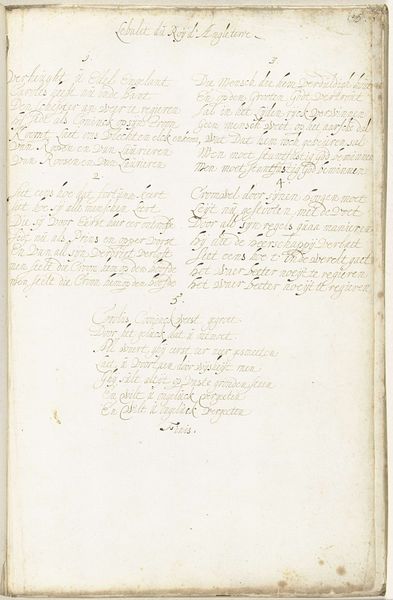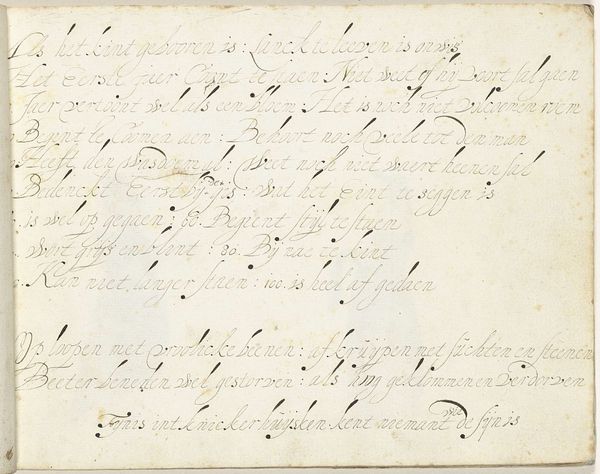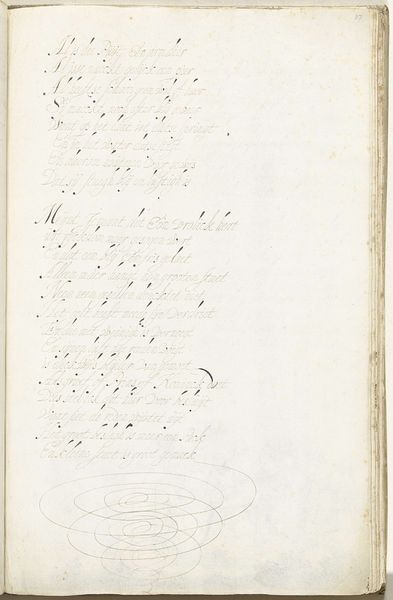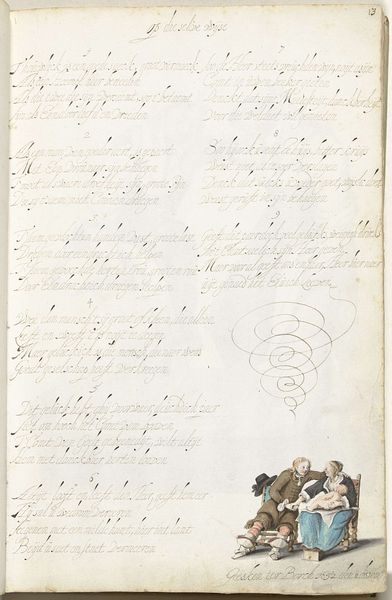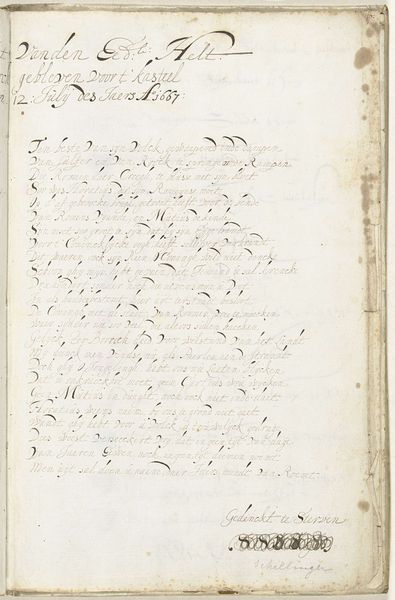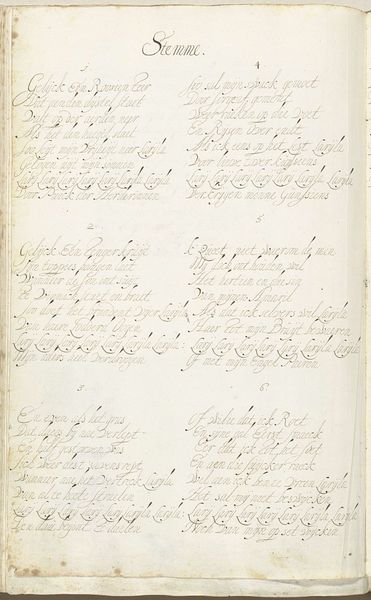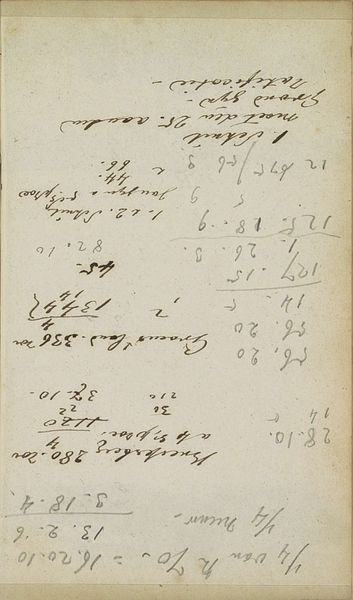
drawing, paper, ink
#
drawing
#
hand written
#
hand-lettering
#
dutch-golden-age
#
hand drawn type
#
hand lettering
#
paper
#
personal sketchbook
#
ink
#
hand-written
#
hand-drawn typeface
#
fading type
#
ink colored
#
calligraphy
#
small lettering
Dimensions: height 243 mm, width 360 mm
Copyright: Rijks Museum: Open Domain
Gesina ter Borch created this poem in honour of Moses ter Borch, likely using ink on paper. We see here not just a piece of personal expression, but an example of the social role art played within elite circles in the 17th-century Dutch Republic. The visual presentation of the poem itself carries meaning. Calligraphy was a highly valued skill, and the act of creating such a carefully lettered piece was itself a form of tribute. The Dutch Republic at this time was a society undergoing rapid economic and social change. The Ter Borch family belonged to the growing urban professional class, where artistic and intellectual pursuits were embraced. The poem, therefore, reflects the cultural values of this group, where family connections, religious piety, and artistic skill were all intertwined. Understanding this artwork requires delving into the social history of the Ter Borch family, the cultural conventions of 17th-century Dutch society, and the history of script itself. Only then can we fully appreciate the complex meanings embedded within this seemingly simple poem.
Comments
No comments
Be the first to comment and join the conversation on the ultimate creative platform.
